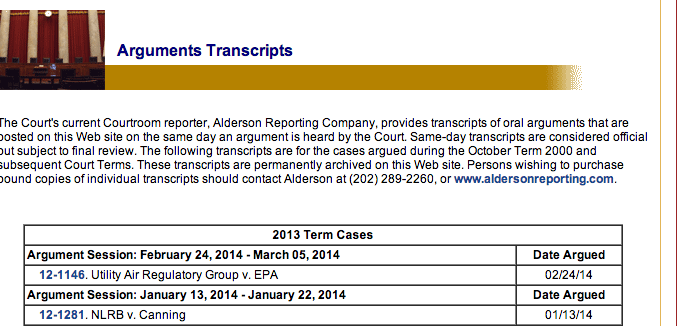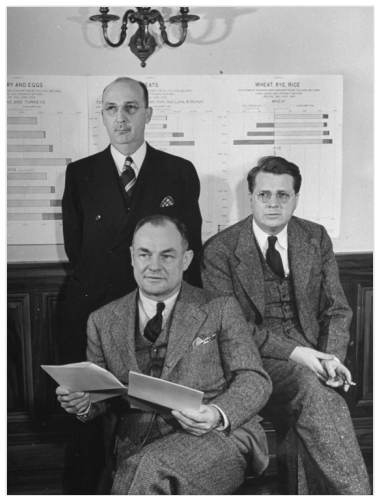While teaching Article III standing, a thought occurred to me that I hadn’t thought about before. Article III uses the words “cases” in some clauses, and “controversies” in others. Is there any significance to the different terminology used?
After a bit of research, I found an article in the Texas Review of Law and Politics by Shane Pennington titled CASES, CONTROVERSIES, AND THE TEXTUALIST COMMITMENT TO GIVING EVERY WORD OF THE CONSTITUTION MEANING. The article argues, in short, that the “cases” and “controversies” are not interchangeable.
Here is the abstract:
Textualists contend that every word of the Constitution must be given meaning and that none should be read as surplusage. But no one takes that rule seriously when it comes to Article III as no scholar has put forward a satisfactory interpretation of Article III that distinguishes between the terms “cases” and “controversies.” This Note begins by exploring and criticizing the current theories for distinguishing between “cases” and “controversies.” Concluding that none is satisfactory, it undertakes an intratextual analysis of “cases” and “controversies” in Article III, and puts forward novel definitions of the terms. This Note reveals for the first time that the terms’ definitions overlap. The importance of these terms becomes clear once their definitions are extrapolated into a novel theory of Supreme Court jurisdiction one that undermines Professor Akhil Reed Amar’s vision of the Original Jurisdiction Clause. It also points out a rare discovery an instance of Professor Amar, the normally careful textualist, misquoting the Constitution when discussing these terms. Rather than overlook Professor Amar’s misquotation, which in other circumstances might be viewed as a meaningless scrivener’s error, this Note shows it to be a prime illustration of how Professor Amar and other commentators fail to give a separate meaning to both “cases” and “controversies.” The Note then goes on to explain how a proper understanding of the terms “cases” and “controversies” clarifies the distinction between “mandatory-tier” and “discretionary-tier” disputes that Professor Amar famously put forward. It concludes that this analysis compels rejection either of Professor Amar’s view of the Supreme Court’s jurisdiction or of the textualist rule that each word of the Constitution is to be given meaning
The article goes on to argue that “cases” are issues that are mandatory for the court’s to hear, while “controversies” are discretionary.
Contrary to common scholarly interpretation, careful reading reveals a certain degree of overlap between the otherwise distinct definitions of “cases” and “controversies.” Some disputes that qualify as “controversies” fall under the mandatory tier because they involve federal questions, admiralty issues, or ambassadors.62 Thus, some “cases” are also “controversies” and vice versa. This means that scholars who discuss Professor Amar’s two-tiered theory, and Professor Amar himself, are incorrect to call all disputes that fall under one of the six controversy categories “discretionary.”63 In fact, many “controversies” are also “cases” and therefore fall within the mandatory tier.
Thus, the Constitution recognizes three types of dispute: 1) “cases,” 2) “controversies,” and 3) “controversies” that are also “cases.” …
To summarize, “cases” refers to a subset of the legal disputes to which the judicial power of the United States extends, namely, federal question, admiralty, and ambassador disputes. “Controversies” refers to other categories of disputes, namely, those (1) to which the United States shall be a party, (2) between two or more states, (3) between a state and citizens of another state, (4) between citizens of different states, (5) between citizens of the same state claiming lands under grants of different states, and (6) between a state, or the citizens thereof, and foreign states, citizens, or subjects. The content of the two subsets overlaps and this overlap reveals a more precise conceptualization of the disputes to which the federal jurisdiction applies. There are pure “cases,” pure “controversies,” and “cases” that are also “controversies.”
Update: Additional comments from Adam J. White.
A decade ago, I went to the Fed Soc’s biennial class on separation of powers, taught by Justice Scalia. And I asked him that very question: isn’t there an important historical distinction between “cases” and “controversies.”My point was that, for the Founders, “cases” were simply the continuation of the traditional English legal system but “controversies” reflected the courts’ important new role in the federal system. “Controversies” — between States, between citizens of different States, and so on — embodied the difficult issues of State and nation sovereignty and power inherent in the novel new American republic.I looked into this more after that conference. Perhaps the most eloquent expositor of this notion of “controversy” Chief Justice Taft:The jurisdiction and procedure of this court in controversies betweenstates of the Union differ from those which it pursues in suits between private parties. This grows out of the history of the creation of the power, in that it was conferred by the Constitution as a substitute for the diplomatic settlement of controversies between sovereigns and a possible resort to force. The jurisdiction is therefore limited generally to disputes which, between states entirely independent, might be properly the subject of diplomatic adjustment. They must be suits ‘by a state for an injury to it in its capacity of quasi sovereign. In that capacity the state has an interest independent of and behind the titles of its citizens, in all the earth and air of its domain.’ ‘When the states by their union made the forcible abatement of outside nuisances impossible to each, they did not thereby agree to submit to whatever might be done. They did not renounce the possibility of making reasonable demands on the ground of their still remaining quasi sovereign interests, and the alternative to force is a suit in this court.’North Dakota v. Minnesota, 263 U.S. 365, 372-73 (1923). It’s fitting that Taft would wax so eloquently on this, given his background not just as President but also as our Governor of the Philippines in the aftermath of the Spanish-American War, an era that raised new questions of sovereignty and the courts.Charles Evans Hughes, another great diplomat-jurist, struck similar notes in Principality of Monaco v. State of Mississippi, 292 U.S. 313, 330 (1934) (“We think that Madison correctly interpreted clause 1 of section 2 of article 3 of the Constitution as making provision for jurisdiction of a suit against a State by a foreign State in the event of the State’s consent but not otherwise. In such a case, the grounds of coercive jurisdiction which are present in suits to determine controversiesbetween States of the Union, or in suits brought by the United States against a State, are not present. The foreign State lies outside the structure of the Union. The waiver or consent, on the part of a State, which inheres in the acceptance of the constitutional plan, runs to the other States who have likewise accepted that plan, and to the United States as the sovereign which the Constitution creates.”).



